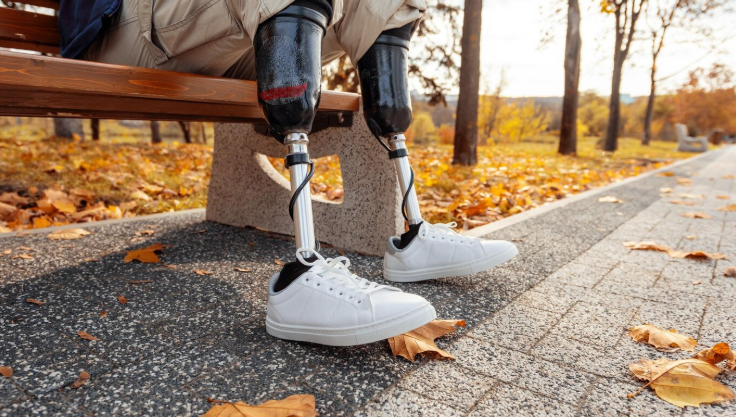The Role of Custom Prosthetic Leg in Enhancing Mobility

Mobility is a fundamental aspect of human life. For individuals who have lost a limb, regaining the ability to move freely can be transformative. A custom prosthetic leg plays a crucial role in this journey. It is not just a medical device but a tool that empowers people to live their lives with confidence and independence. In this article, we will explore how these advanced solutions enhance mobility while also discussing related topics like naturopathic medicine and addiction treatment programs.
Understanding Custom Prosthetic Legs
A custom prosthetic leg is designed specifically for an individual’s unique needs. These devices are crafted using cutting-edge technology and materials to ensure comfort and functionality. Unlike standard prosthetics, they are tailored to fit the user perfectly. This personalization makes them more effective in restoring natural movement. Modern advancements have made these legs lighter, stronger, and more durable than ever before. They offer users greater stability and control, which significantly improves their quality of life.
A custom prosthetic leg is not a one-size-fits-all solution. Each prosthetic is built based on measurements, lifestyle, and activity levels of the person. This ensures that every step feels comfortable and secure. As a result, individuals regain confidence in performing daily tasks and participating in activities they once enjoyed.
Read also: Exploring the Potential of AI in Smart Farming Technologies
Considering Naturopathic Medicine
Naturopathic medicine focuses on holistic healing approaches. It emphasizes the body’s ability to heal itself through natural methods. For individuals adapting to life with a custom prosthetic leg, this form of medicine can complement traditional treatments. Naturopathy offers techniques such as herbal remedies, nutritional counseling, and stress management strategies. These practices help improve overall well-being during recovery.
Incorporating naturopathic principles into rehabilitation can provide additional support. For example, certain herbs may reduce inflammation or promote tissue repair. Nutritional advice can ensure the body receives essential nutrients for healing. Stress reduction techniques like meditation or yoga can also ease emotional challenges associated with adjusting to a new prosthetic.
Enrolling Them in Addiction Treatment Programs
Addiction can complicate the process of adapting to a custom prosthetic leg. Whether it stems from pain medication dependency or pre-existing substance abuse issues, addressing addiction is critical. Enrolling individuals in specialized treatment programs can make a significant difference. These programs offer structured support systems to overcome addiction while focusing on physical health goals.
Treatment plans often include therapy sessions, group support, and medical supervision. By tackling addiction head-on, individuals can fully focus on mastering their prosthetic legs. This dual approach enhances both mental clarity and physical capabilities. The result is a smoother transition toward independent mobility.
Building Confidence Through Practice
Practicing with a custom prosthetic leg builds confidence over time. At first, walking might feel awkward or unstable. However, consistent practice strengthens muscles and improves balance. Physical therapists play a vital role by guiding individuals through exercises tailored to their specific prosthetic design.
Small victories along the way boost morale. Achieving milestones—like walking without assistance or climbing stairs—creates momentum. This progress motivates individuals to push further and embrace their newfound abilities. Overcoming initial hurdles demonstrates resilience and determination.
Conclusion
Custom prosthetic legs transform lives by enhancing mobility and restoring independence. Through personalized design and technological innovation, these devices enable individuals to reclaim their freedom. Complementary approaches like naturopathic medicine and addiction treatment programs further enrich the recovery process. With dedication, practice, and support, anyone can achieve remarkable results. Embracing these opportunities paves the way for a brighter, more active future.
